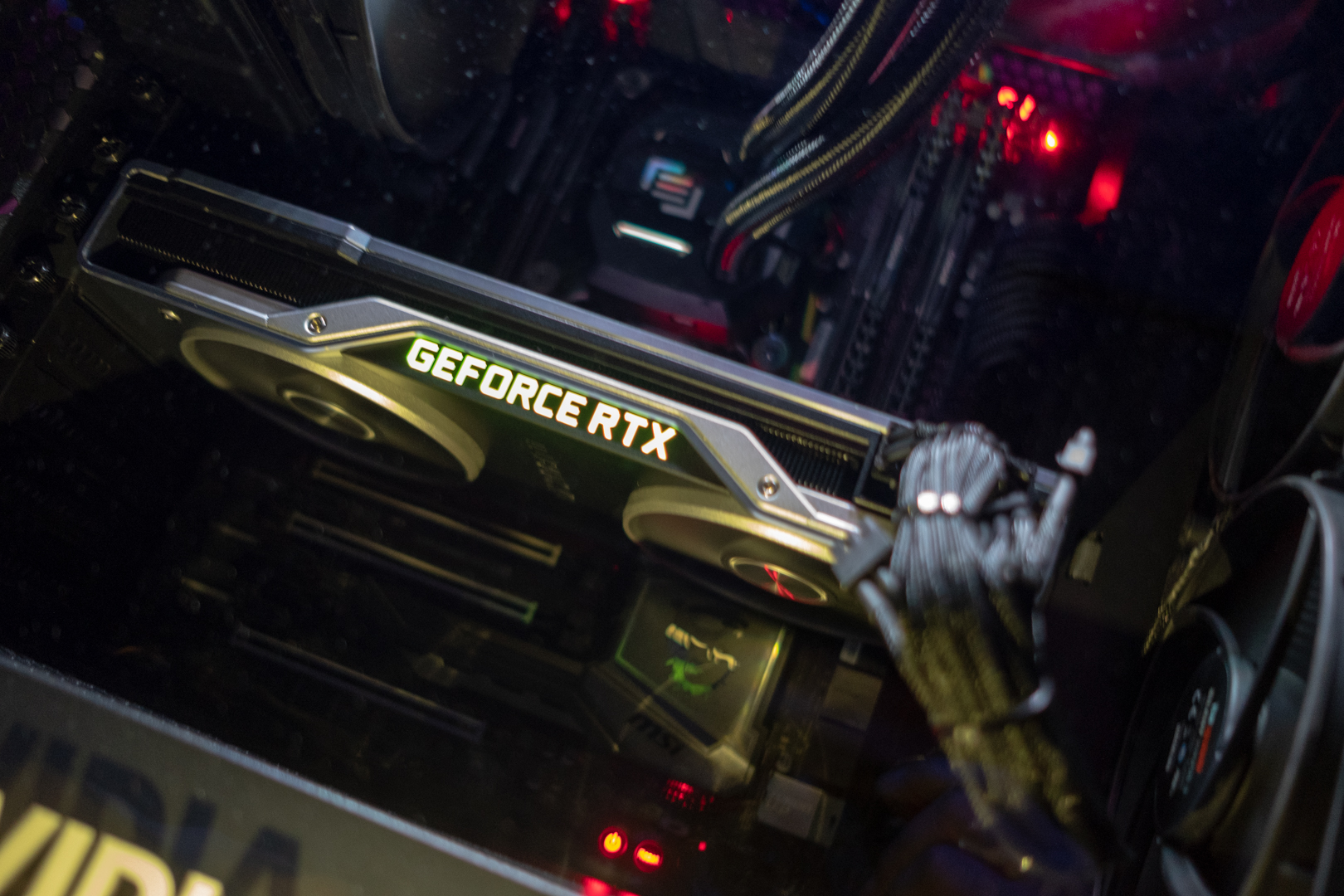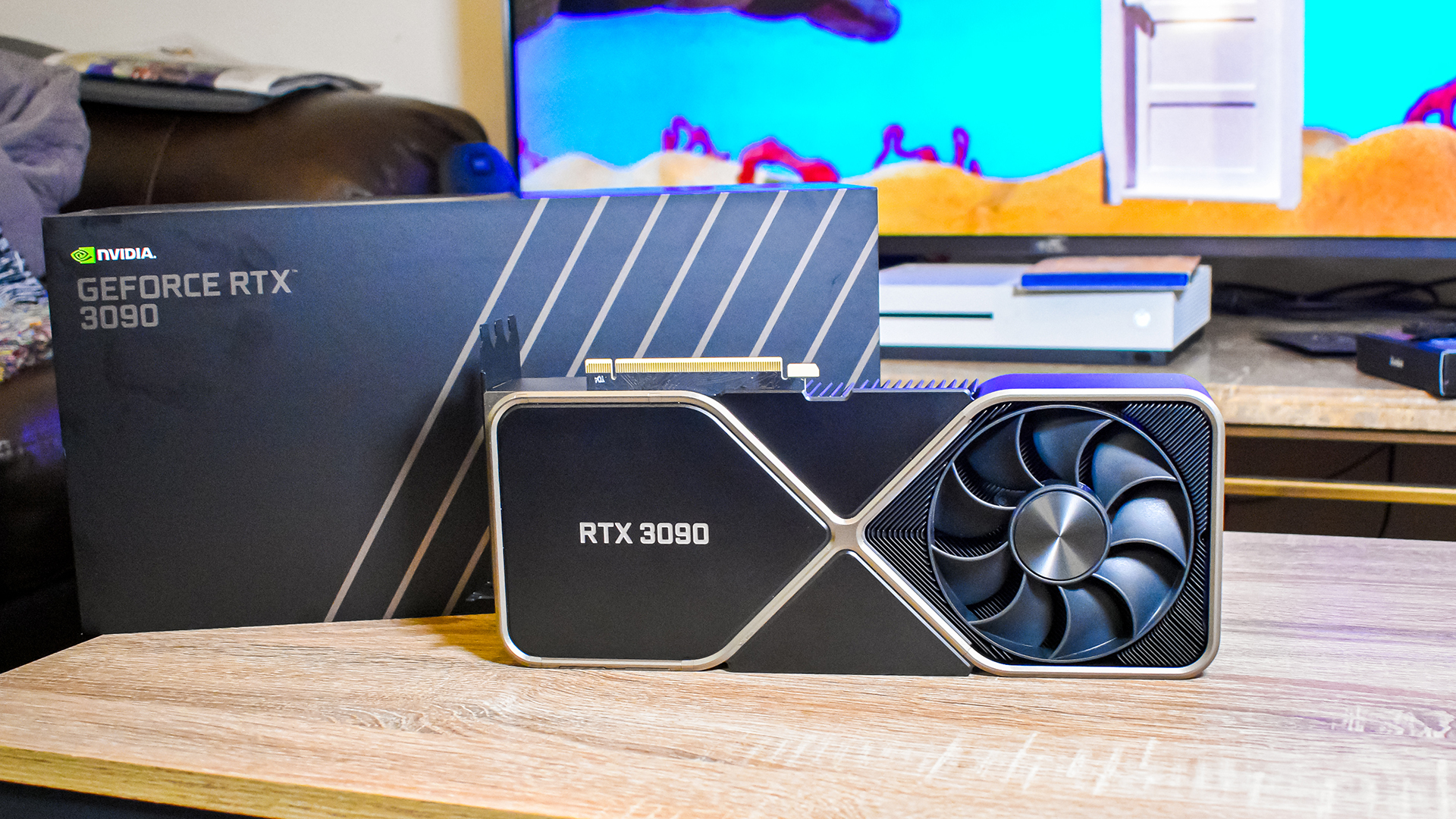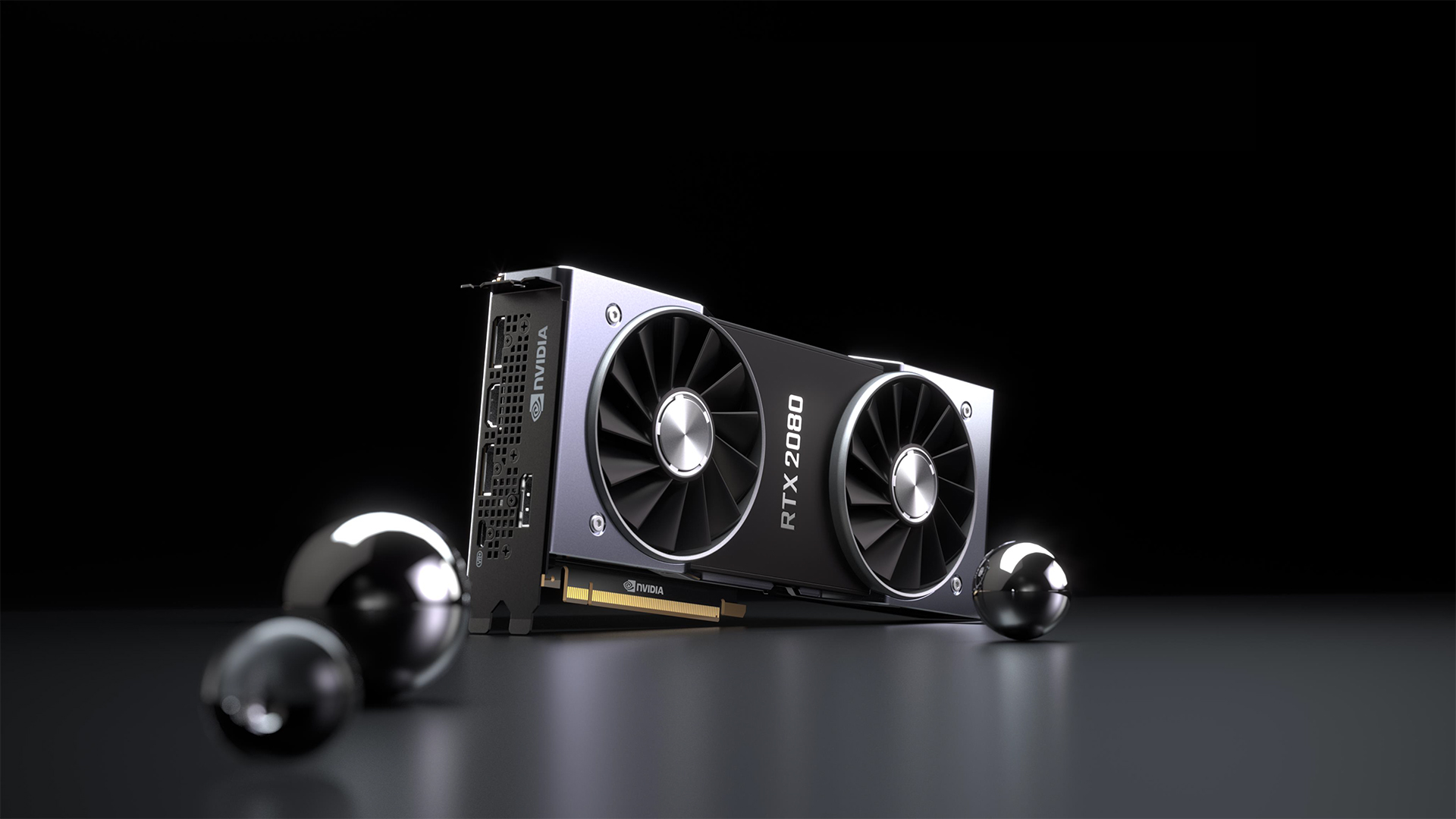Nvidia RTX 3090 vs RTX 2080 Ti: A titan to challenge the king
The Nvidia RTX 3090 is the new performance king. Until we see Super or Ti variants, it’s the best that Team Green is offering, and it’s not throwing a Titan label on it to classify it outside of the mainstream. So, while Nvidia seems to want to claim that this flagship-level graphics card isn’t a follow-up to the Nvidia GeForce RTX 2080 Ti, that’s still effectively what it is – it’s just more expensive.
And while we probably won’t see any Black Friday deals around the Nvidia GeForce RTX 3090 (or even the RTX 2080 Ti), there will likely be a lot of buzz around this top-end graphics card throughout the holiday season. So, we thought it would be a good idea to see how it stands up against its Turing predecessor, the Nvidia GeForce RTX 2080 Ti.

Nvidia RTX 3090 vs RTX 2080 Ti: Price
Unlike the rest of the Nvidia Ampere cards, the RTX 3090 actually costs more than the RTX 2080 Ti. The RTX 3090 costs $1,499 (£1,399, around AU$2,030), whereas the RTX 2080 Ti launched at $1,199 (£1,099, AU$1,899). Neither card is exactly priced where it should be, though.
High demand for Nvidia’s new Ampere graphics cards have made it hard to find them for sale at their retail prices, and a quick look around the market shows the RTX 2080 Ti still selling for more than its retail price in many cases. So, while the RTX 2080 Ti should be cheaper than the RTX 3090, it’s uncertain when or if you’ll be able to find either appropriately priced.
In any case where the RTX 2080 Ti costs more than the RTX 3090, we’d say to go with the 3090.

Nvidia RTX 3090 vs RTX 2080 Ti: Specs
The RTX 3090 doesn’t leave much hope for the RTX 2080 Ti when it comes to specs. The new card features 10,496 CUDA cores compared to the older card’s 4,352 CUDA cores. That’s more than double, and still stands out even when considering the new design sees its cores split between FP32 (Floating Point 32)-dedicated cores and cores that can tackle either FP32 or INT32 (Integer 32) operations. So, even if the split-duty cores were all focused on INT32 operations, the remaining FP32-based CUDA cores would still outnumber those found on the 2080 Ti by a wide margin.
The RTX 3090 may have fewer Tensor cores at 328, but they are a newer version than the RTX 2080 Ti’s 544 Tensor cores. And, when it comes to ray-tracing, the 3090’s 82 RT cores have an edge over the 2080 Ti’s 68 RT cores. The new card even runs at higher clock speeds with a 1,395MHz base clock and a 1,695MHz boost compared to the 1,350MHz base and 1,635MHz boost of the RTX 2080 Ti.
The gap only widens when looking at the memory. The RTX 2080 Ti features a respectable 11GB of GDDR6 on a 352-bit bus for 616GB/s of memory bandwidth. But, the RTX 3090 jumps up to Titan territory with 24GB of GDDR6X on a 384-bit bus for a whopping 936 GB/s memory bandwidth.
All that power in the RTX 3090 does come at a price. The card has a 350W power draw, meanwhile the RTX 2080 Ti has what now seems like a modest power draw of 260W.
One other spec gamers shouldn’t overlook is the HDMI port. If you’re planning to game on a 4K/120Hz or 8K TV, the RTX 3090’s HDMI 2.1 port will be a must-have. The RTX 2080 Ti features HDMI 2.0, which can only get you to 4K/60Hz without dumping HDR, and color depth. That said, you can mostly ignore this if you’re using the best gaming monitors, since DisplayPort on either card can deliver substantially more bandwidth for high resolution and frame rates.

Nvidia RTX 3090 vs RTX 2080 Ti: Performance
Let’s just get this out of the way: The RTX 3090 probably shouldn’t be on your shopping list if you’re not planning to do some serious creative work or game at 4K. It shows its muscle in the higher resolutions far better than it does at lower resolutions, and you don’t want to leave any performance untapped when you’re paying a serious premium to get it.
So, we’re only going to focus on 4K performance here. And, when it comes to that, the RTX 3090 trounces the RTX 2080 Ti. Across our gaming benchmarks in everything from Metro Exodus and Horizon Zero Dawn to Total War and Grand Theft Auto V, the RTX 3090 showed at least 38% higher average frame rates, and overall it had 42% higher performance. It outclassed the RTX 2080 Ti by 45% in our synthetic benchmarks, which consisted of Time Spy Ultra, Fire Strike Extreme, and Port Royale.
And, even though the RTX 3090 drew 81W more power from the wall at its peak, its temperature topped out at 69C, whereas the 2080 Ti ran hotter at 84C.

Nvidia RTX 3090 vs RTX 2080 Ti: Which should you buy?
The choice between the RTX 2080 Ti and RTX 3090 will largely depend on how you plan to use it. If you’re hoping to game on a 4K/120Hz TV with HDR, you’ll need the RTX 3090. For gaming in 4K, the RTX 3090 hits averages over 60fps more frequently than the 2080 Ti, and future support for DLSS in more games will likely give it even more of a lead.
Assuming the price of the RTX 2080 Ti starts to come down some to actually sit below the RTX 3090’s price, it could be the better option for gamers looking to get strong value in esports where 4K isn’t as big of a draw. But, if the RTX 2080 Ti still costs over the $699 (£649, about AU$950) price tag of the RTX 3080, it won’t be as compelling.
Outside of gaming, the RTX 3090 will likely easily earn its keep with the substantial increase in VRAM capacity and speeds.
So, while the RTX 2080 Ti could still offer value in a matchup with the RTX 3090, its matchup against the RTX 3080 doesn’t leave it much of a place in the market.
from TechRadar - All the latest technology news https://ift.tt/34wEcog

Comments
Post a Comment